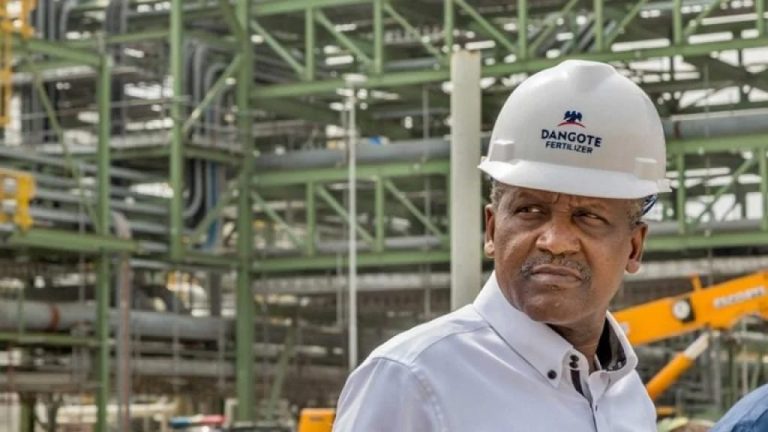Chairman of the Dangote Group, Aliko Dangote, announced that Nigeria would cease to import gasoline within the next month thanks to the operations of the Dangote Refinery.
In a groundbreaking statement at the Africa CEO Forum Annual Summit in Kigali on Friday, Dangote expressed his confidence in the refinery’s capacity to meet not only Nigeria’s petrol and diesel requirements but also the broader needs of West Africa and the continent’s aviation fuel demand.
ADULAWO NEWS reports that this development is expected to significantly alter Africa’s energy landscape.
“By sometime in June, Nigeria shouldn’t import anything like gasoline; not one drop of a litre,” Dangote declared, marking a pivotal moment in Nigeria’s history with fuel importation.
The Dangote Refinery, which was commissioned in February, has a processing capacity of 650,000 barrels per day and is one of the largest oil refineries in the world. It produces a range of petroleum products, including jet fuel, diesel, and soon, gasoline.
Highlighting the refinery’s strategic importance, Dangote said, “Our refinery is quite big. It is something that we believe Africa needs. Currently, only Algeria and Libya do not import petroleum products, which is a tragedy for the continent.”
Dangote also shared insights into the refinery’s production capabilities, noting that it will not only serve Nigeria but is also poised to supply West Africa, Central Africa, and South Africa.
He stressed the importance of transitioning from raw material exportation to finished product production to foster job creation and economic development.
The industrial magnate also touched on challenges such as policy inconsistency, which he identified as a major obstacle for African entrepreneurs.
He urged African leaders to ensure stable policies that facilitate trade and investment within the continent.
With these developments, Dangote is optimistic about Africa’s future, aiming to make the continent self-sufficient in various sectors, including fertilizers and energy, thereby reducing dependency on imports.
This initiative is seen as a critical step in changing the narrative of Africa from being a raw material exporter to a self-sustaining, industrially developed continent.

